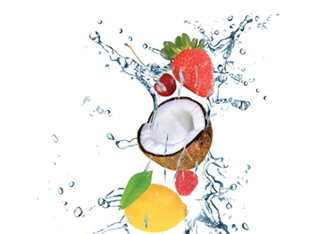Washington DC impacts the industry through legislation, while its neighbor Maryland supplies an abundance of fresh fruit and vegetables to the region and surrounding states. Although it may be too soon to tell what recent legislation will mean in the long run, one thing becomes clear: politicians in the District of Columbia are keenly aware of the value of the country’s agriculture and the many crops that feed the world—and Maryland is a major contributor to this bounty. The Old Line State’s multibillion-dollar fresh produce industry is served by the Maryland Wholesale Produce Market, located in Jessup. The market is just over 100 miles southwest of the Philadelphia Wholesale Produce Market, with access to other markets farther north as well. The Maryland market enjoys connections up and down the East Coast and serves as a major hub for everything from apples and strawberries to more niche exotic commodities like boniatos and nopales. Maryland and DC enjoy a symbiotic relationship: growers supply the market with fresh produce, while distributors assure these fruits, vegetables, and herbs are shipped to retailers, processors, and vendors near and far. Consumers, of course, drive demand, and during the summer and fall months, Maryland is bursting with local pride and product.
The Market
The Jessup Market is a major hub for the mid-Atlantic states, due to its prime location in the middle of the U.S. Eastern Seaboard and unfettered access to DC. It is run by the Maryland Food Center Authority, and though its official name is the Maryland Wholesale Produce Market, most simply call it the ‘Jessup Market’ due to its location. The market is open to the public, but shoppers must still pass by a guardhouse to gain access to the facilities. Hours reflect the demanding schedule of the profession, opening at ten o’clock in the evening from Sunday to Friday, and from midnight to noon on Saturday (for additional information, see the sidebar). The facility covers approximately 400 acres with plenty of room for its two dozen tenants. The Jessup Market deals in the usual produce fare, with all the staple fruits and vegetables, but has become an increasingly important ethnic foods market for the region. T.J. Rahll, sales and office manager for Edward G. Rahll & Sons, Inc. of Baltimore—which recently completed a $250,000 renovation of its facility at the Jessup Market, says demand for ethnic produce is on the rise, and he believes the trend will continue throughout the summer. He also mentioned the growing popularity of kale over the past year, though the “classics” such as apples, potatoes, peppers, and onions, will always play a major role at the market. Pascual Ortiz, president of Baltimore-based Agrimex Produce, is new on the market and like Rahll has experienced high demand for ethnic or specialty commodities. For Ortiz, hot commodities from Latin America and Mexico include the now mainstream avocados, papayas, and chile peppers (poblanos, serranos, and jalapenos) as well as plums, tomatoes, tomatillos, onions, and cilantro. More exotic items gaining popularity are cebollines (chives) and nopales (cactus paddles).



